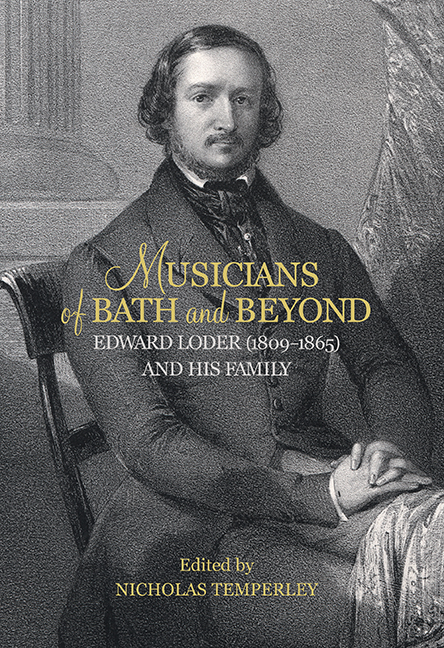Book contents
- Frontmatter
- Contents
- List of Illustrations
- Acknowledgments
- Notes on Contributors
- The Loder Family Tree
- Abbreviations
- Introduction
- PART ONE The Musical Profession in Early Nineteenth-Century England
- PART TWO The Loder Family
- PART THREE The Music of Edward Loder
- EPILOGUE The 1966 Revival of Raymond and Agnes
- Select Bibliography
- Index of Edward Loder’s compositions
- General Index
- Miscellaneous Endmatter
7 - Edward James Loder (1809–1865): A Life in Music
Published online by Cambridge University Press: 04 June 2021
- Frontmatter
- Contents
- List of Illustrations
- Acknowledgments
- Notes on Contributors
- The Loder Family Tree
- Abbreviations
- Introduction
- PART ONE The Musical Profession in Early Nineteenth-Century England
- PART TWO The Loder Family
- PART THREE The Music of Edward Loder
- EPILOGUE The 1966 Revival of Raymond and Agnes
- Select Bibliography
- Index of Edward Loder’s compositions
- General Index
- Miscellaneous Endmatter
Summary
EDWARD James Loder was one of a remarkable group of composers of similar age who gave distinction to British music during the early part of Queen Victoria's reign. Among others were Michael William Balfe (1808–70), Samuel Sebastian Wesley (1810–78), Thomas Attwood Walmisley (1810–56), William Vincent Wallace (1812–65), George Alexander Macfarren (1813–87), Henry Smart (1813–79), Henry Hugo Pierson (1815–73), and William Sterndale Bennett (1816–75). Loder is most readily classed with Balfe, Wallace, and Macfarren for his association with opera during the period from 1834 to 1865 when British (including Irish) works enjoyed a significant period of success.
For some 150 years reference works have recorded Loder's birth-year as 1813 – with neither day nor month. Investigation of the source of this information reveals the flimsiest of foundations. Since understatement of age in his time was so widespread, documentary evidence pointing to an earlier date of birth should therefore be no surprise. In fact the baptismal registers of St Swithin’s, Walcot, Bath, identify Edward James and John Fawcett Loder, baptised together on 3 July 1811, as twin sons of John David Loder and his wife, born on 10 July 1809. The alternative explanation – that this Edward James Loder died in infancy and the names were given to a second child born in 1813 – seems insupportable. No corresponding death record has been found, and a second Edward James would not only be difficult to fit into the sequence of Loder children, but would also seemingly be unique in the family in having no baptismal record.
The twins doubtless obtained their early musical training largely from their father. As a violin student, John Fawcett no doubt continued to do so. As a pianist, however, Edward would probably have gone on to take lessons from a specialist on the instrument. This may well have been Henry Field (1797–1848, no kin to John Field), a leading Bath pianist who featured prominently at the subscription concerts organised by John Loder, and to whom Edward would dedicate one of his published piano compositions. Edward also needed instruction as a budding composer, which is where Ferdinand Ries comes into the story.
Ries (1784–1838) had arrived in London in 1813 and married an Englishwoman there the following year.
- Type
- Chapter
- Information
- Publisher: Boydell & BrewerPrint publication year: 2016

